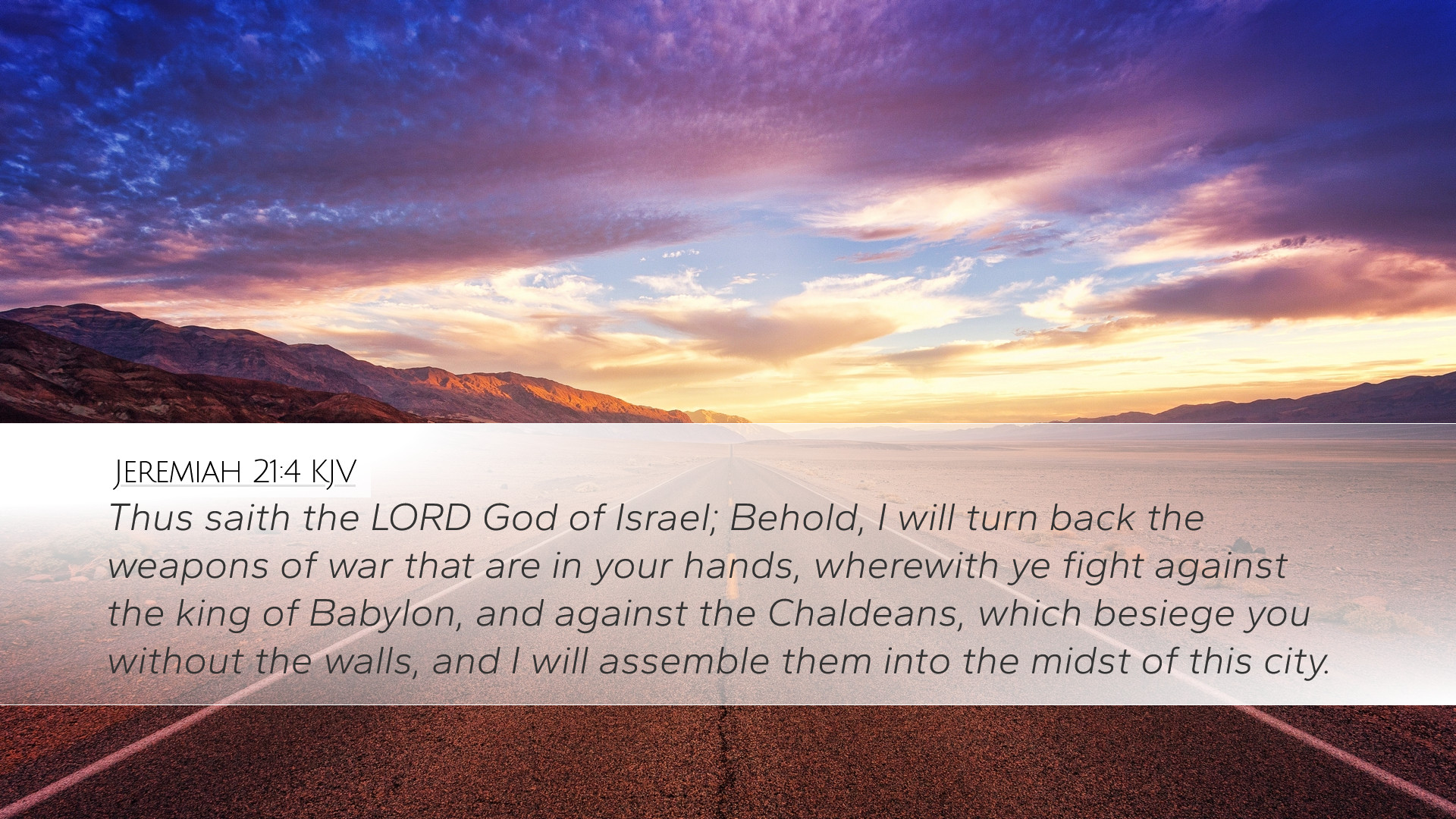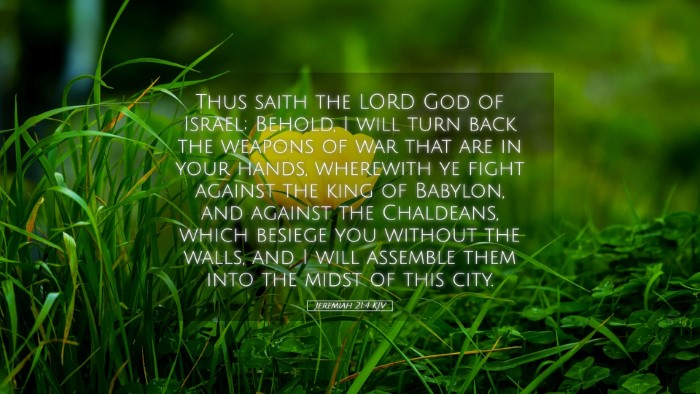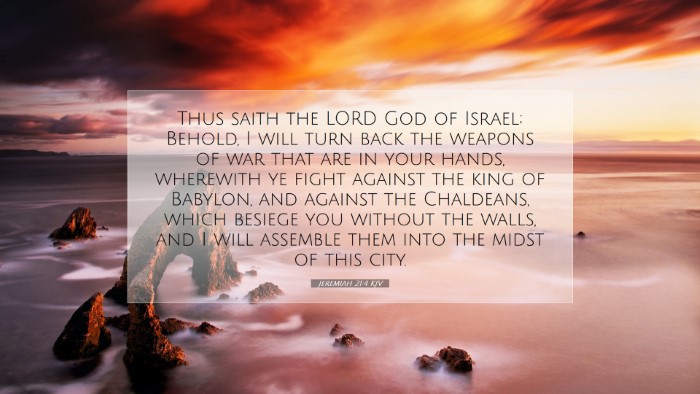Bible Commentary on Jeremiah 21:4
Jeremiah 21:4 states:
"Thus says the Lord God of Israel: Behold, I will turn back the weapons of war that are in your hands, with which you are fighting against the king of Babylon and against the Chaldeans, who are besieging you outside the wall, and I will bring them into the midst of this city."
This verse is a critical component of the narrative during a pivotal moment in the history of Israel. Within this commentary, we will explore various insights from esteemed public domain scholars such as Matthew Henry, Albert Barnes, and Adam Clarke.
Contextual Background
The book of Jeremiah is often viewed as a prophetic warning to the nation of Judah during a time of impending doom. As the Babylonian empire rose to power, the people of Judah faced siege and eventual exile. Jeremiah, known for his prophecies of judgment and messages of repentance, serves as God’s mouthpiece in a time of crisis.
Analysis of the Verse
In Jeremiah 21:4, the Lord explicitly addresses the people of Jerusalem regarding their current plight. The verse provides a profound insight into divine sovereignty and human strife.
Divine Intervention
According to Matthew Henry, the phrase "I will turn back the weapons of war" indicates that God is the ultimate authority over battle and conflict. The weapons that were once a source of hope for the people now become a means for their despair. This reflects the theological theme that God can shift the probabilities and outcomes of human conflict at His will.
God's Judgment
Albert Barnes elucidates that this turning back of weapons signifies not only a physical turning away but also indicates judgment against their rebellion. The people were fighting against Babylon, but Barnes emphasizes that God’s judgment was at the core of their suffering. Their combativeness, driven by fear, was unwarranted as they did not recognize that their true battle was with God’s decree.
The Human Condition
Adam Clarke interprets the expression in a way that highlights human frailty and the futility of resisting God's will. He warns that the weapons used by man are insignificant before God's almighty purpose. Clarke's commentary underlines the need for humility, suggesting that reliance on human strength is destined to fail when it stands against divine judgment.
Theological Implications
From this verse, multiple theological themes arise that are pertinent for contemporary readers, especially pastors and theologians:
- God's Sovereignty: The passage demonstrates God's control over not only individual lives but also over the geopolitical landscape.
- Human Rebellion: It articulates the idea that human attempts to defy divine authority lead to destruction.
- Hope Amidst Despair: Despite the grim predictions, God's messages via Jeremiah offer hope for restoration, should repentance occur.
Pastoral Recommendations
For pastors delivering sermons based on this passage, consider the following:
- Highlight Repentance: Encourage congregations to reflect on their own lives and how they may be resisting God's will.
- Emphasize God's Sovereignty: Remind listeners that God controls outcomes and that faith in His plan is essential, especially during turbulent times.
- Use Historical Context: Incorporate elements of Israel's history to illustrate the consequences of straying from God's path and the importance of returning to Him.
Scholarly Insights
For scholars, an in-depth study of this text may involve comparative analysis with other prophetic texts that speak to themes of judgment and deliverance. Historical exegesis can be significantly enriched by examining the Babylonian context in tandem with Israel's covenantal obligations.
Comparative Scriptures
Several verses mirror the sentiments found in Jeremiah 21:4:
- Isaiah 45:7 - God's sovereignty over peace and turmoil
- Ezekiel 18:30 - God's call for repentance
- Lamentations 3:22-23 - A message of hope amidst judgment
Conclusion
Jeremiah 21:4 serves as both a warning and a promise. It reflects on the importance of acknowledging God’s authority and the consequences that arise when one chooses to oppose divine plans. The message continues to resonate today, inviting believers to trust in God’s sovereignty and embrace repentance as a means to experience His mercy and restoration.


